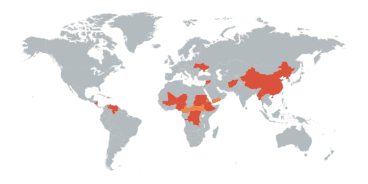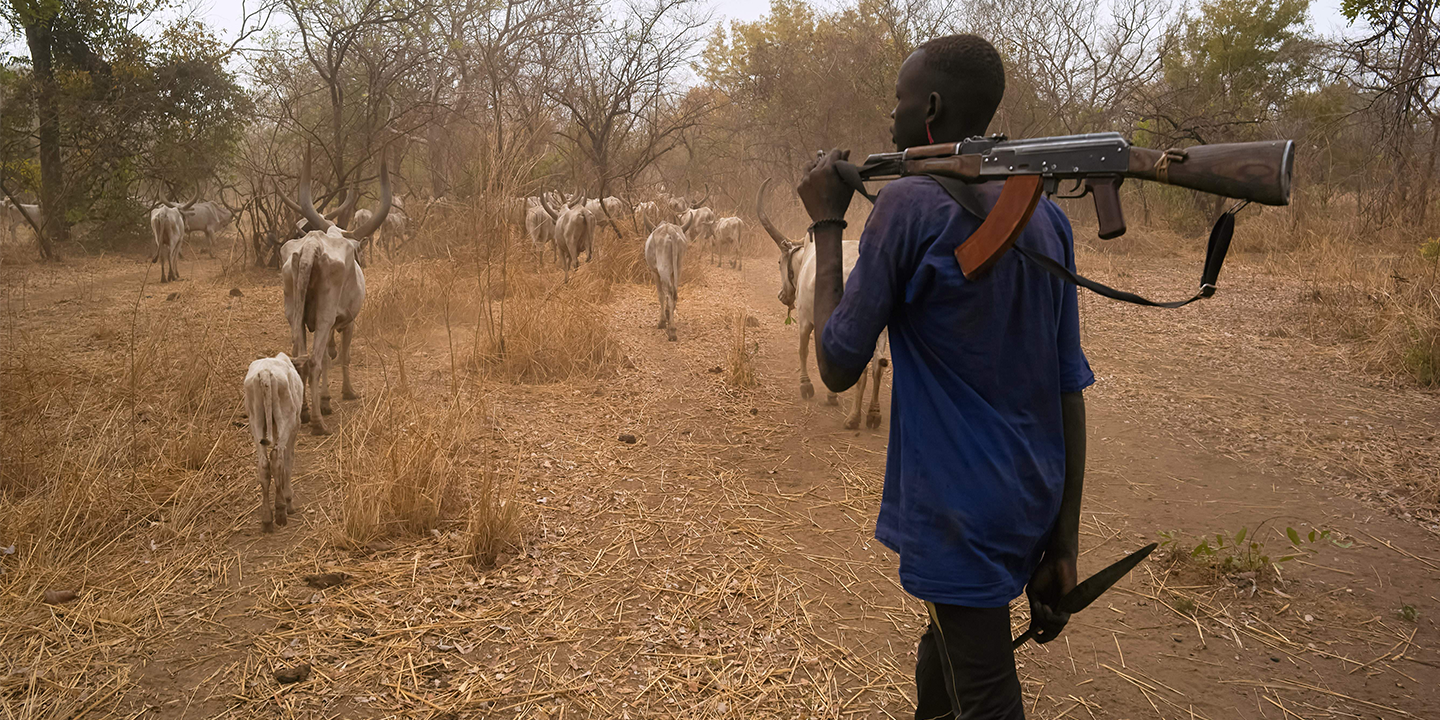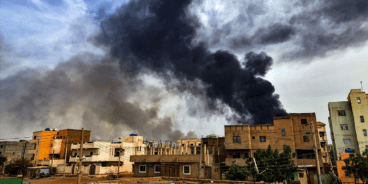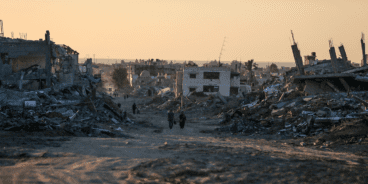

Atrocity Alert No. 224: South Sudan and Guinea
Atrocity Alert is a weekly publication by the Global Centre for the Responsibility to Protect highlighting situations where populations are at risk of, or are enduring, mass atrocity crimes.
Starvation as a weapon of war in South Sudan
Last Tuesday, 6 October, the Commission on Human Rights (CoHR) in South Sudan released a report alleging that government troops and armed opposition forces have both deliberately used the starvation of civilians as a method of warfare, particularly in Western Bahr el Ghazal and Jonglei states.
The report documents that between 2017 and 2019, government forces systematically attacked, pillaged, destroyed and rendered useless objects indispensable for the survival of civilians. Ancestral communities of farmers and cultivators were also forcibly displaced and their land expropriated to benefit communities loyal to the government. According to the report, government forces also systematically denied humanitarian access to civilians living in opposition-controlled areas, depriving them of access to food, water and other crucial supplies. Opposition forces loyal to Vice President Riek Machar also committed similar acts in Central Equatoria State. The report concludes that these acts destroyed the social fabric of many rural communities, amounting to collective punishment and starvation as a method of warfare.
Despite the 2018 signing of the Revitalized Agreement on the Resolution of the Conflict in the Republic of South Sudan (R-ARCSS), the CoHR noted that a “shocking level” of hunger still persists in the country. There are currently nearly 6.5 million people who are acutely food insecure and an estimated 1.3 million children under the age of five are malnourished.
Barney Afako, a member of the CoHR, stated that, “the ongoing failure to address underlying causes of the conflict has fuelled the political competition for South Sudan’s resources and corruption between political elites driving ethnic divisions and violence, and deepening impunity in the country.”
On 9 October it was announced that the Nobel Peace Prize for 2020 will be awarded to the World Food Programme (WFP) for its efforts to combat hunger, for improving conditions for peace in conflict-affected areas, and for advancing efforts to prevent the use of hunger as a weapon of war. In South Sudan the WFP not only provides life-saving support to desperate civilians, it also uses food assistance as a tool for peacebuilding and development.
Juliette Paauwe, Research Analyst at the Global Centre for the Responsibility to Protect, said that, “the shocking and deliberate use of starvation as weapon of war must end in South Sudan. The government must ensure that all communities have rapid, unhindered and sustained access to humanitarian aid, and must fully implement the R-ARCSS, particularly the provisions in Chapter 3 on Humanitarian Assistance and Reconstruction.”
Rising tensions and incitement ahead of Guinea elections
This Sunday, 18 October, Guineans will head to the polls for presidential elections amidst increasing tensions between government and opposition supporters. Election-related protests have taken place since October 2019. The announcement of a controversial constitutional referendum on 22 March 2020, which allowed incumbent President Alpha Condé to run for a third term, resulted in renewed violence and serious human rights violations. Amnesty International estimates that at least 50 people have been killed by the security forces over the past year.
The UN High Commissioner for Human Rights, Michelle Bachelet, has warned about growing hate speech and ethnic mobilization during the election campaign. On 7 October the High Commissioner said that, “given the history of inter-communal violence in Guinea, I am deeply worried about such dangerous rhetoric by political leaders, which in some cases may amount to incitement to hostility, discrimination or violence.” Similarly, on 9 October Fatou Bensouda, Chief Prosecutor of the International Criminal Court, warned of “the use of inflammatory rhetoric by some political actors during their electoral campaign, leading to growing ethnic tensions.”
Political conflict and ethnic tensions in Guinea have previously resulted in atrocities. Following a crackdown on opposition protests in Conakry stadium during September 2009, during which over 150 people were killed and 1,200 injured, a UN-mandated Commission of Inquiry concluded that crimes perpetrated by the security forces were part of a “widespread and systematic attack,” possibly amounting to crimes against humanity. Dozens of people were also killed during sporadic violence between demonstrators and security forces ahead of the country’s 2013 legislative elections, resulting in deepening hostility between ethnic Malinké and Peuhl communities.
Ahead of this week’s vote, the European Union has called on the authorities to calm the political situation and ensure a transparent and safe voting process. Acting Special Adviser on the Prevention of Genocide, Pramila Patten, also reminded the government of “its primary responsibility to protect all its population from acts of violence, irrespective of ethnic or political affiliation.”
To prevent further conflict and instability the Guinean authorities, as well as opposition candidates and their supporters, must refrain from using inflammatory rhetoric and inciting violence against anyone on the basis of their political affiliation or ethnic identity. The security forces must strictly abide by international standards on the use of force and must ensure that all Guineans are able to safely exercise their right to vote. The African Union and other regional bodies should continue to closely monitor the volatile situation in Guinea following Sunday’s election.
Related Content


